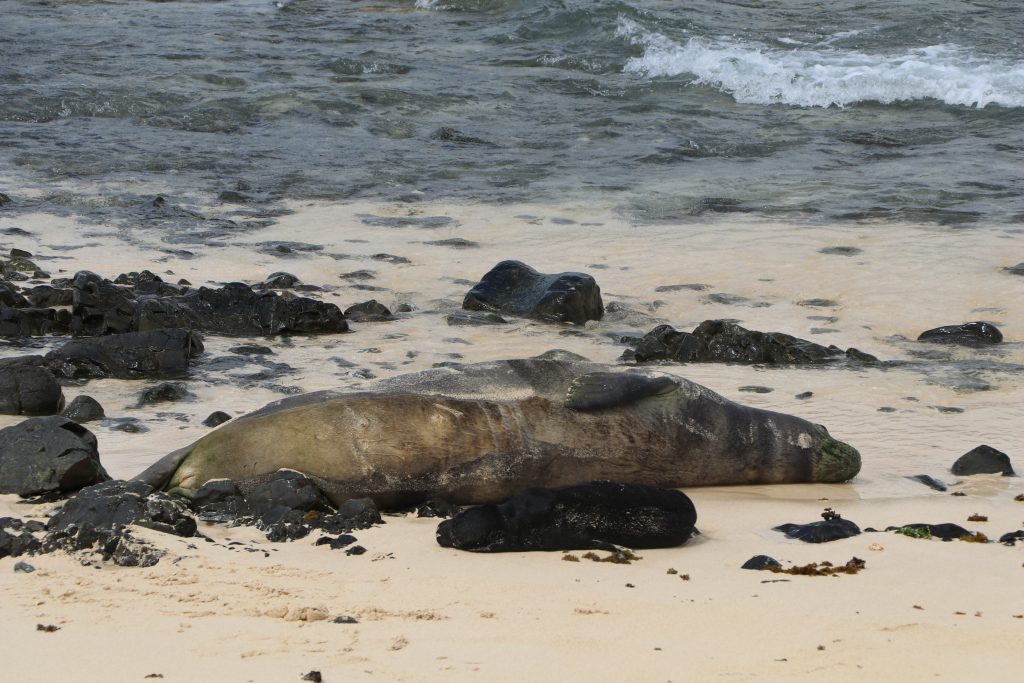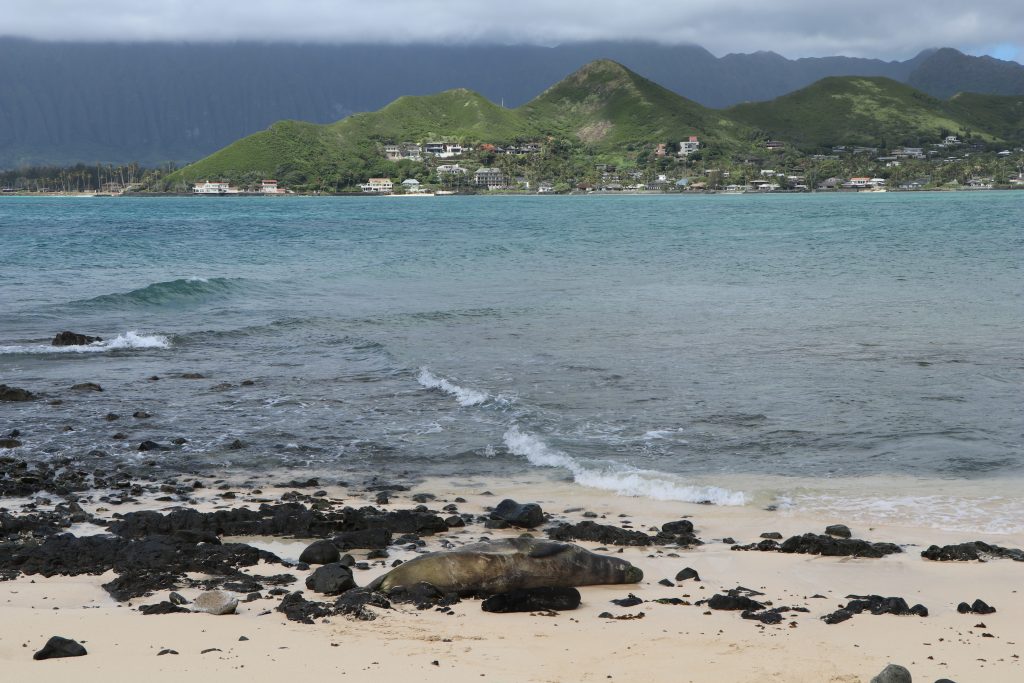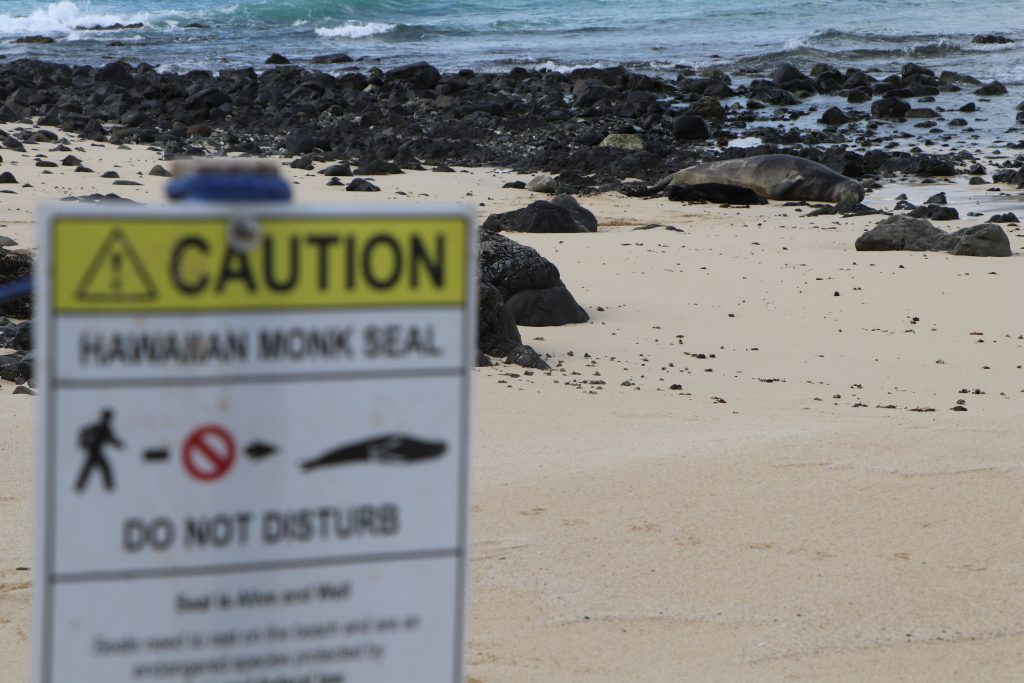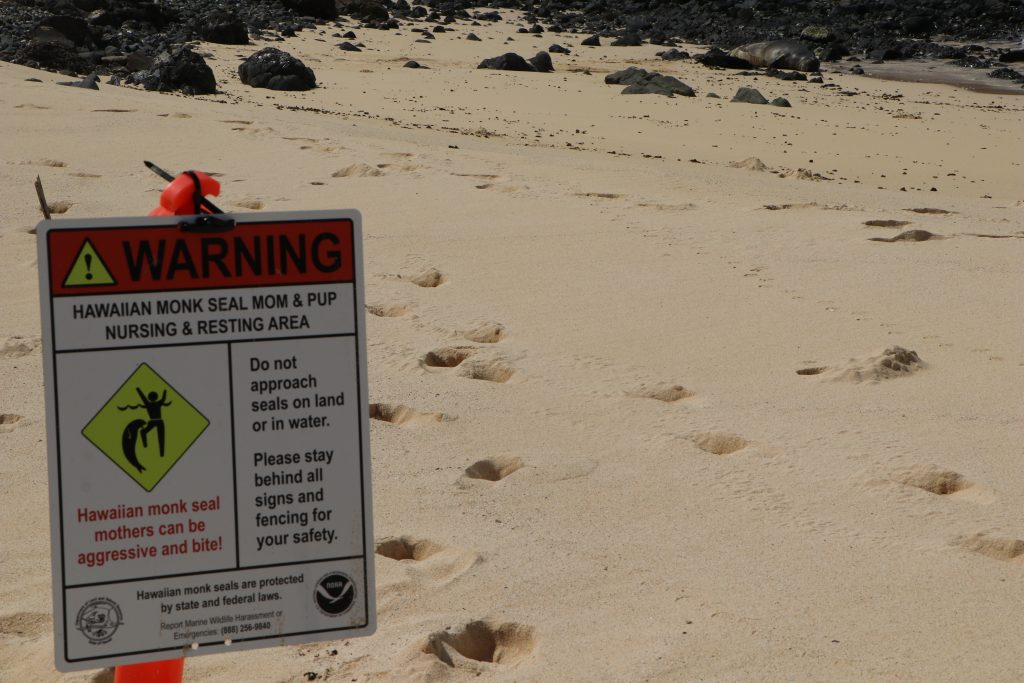Land board authorizes temporary closures of wildlife sanctuaries

In an action inspired by last month’s birth of a monk seal on Mokulua island off of O‘ahu’s windward coast, the Board of Land and Natural Resources approved the temporary closure of wildlife sanctuaries statewide when necessary to protect endangered or threatened species.
A mother monk seal rears her head after giving birth to a pup last month on Mokulua island off of O‘ahu’s windward coast. The birth prompted the Board of Land and Natural Resources to authorize temporary closures of wildlife sanctuary areas to protect endangered or threatened species.
The move also addresses public safety concerns and allows for timely management of wildlife sanctuaries in urgent situations. Last month’s monk seal birth on Mokulua an island in the Mokulua Islets Seabird Sanctuary was the impetus for the board’s action on Friday, according to an announcement, according to an announcement.
The board approved the Department of Land and Natural Resource’s temporary closure of the Mokulua Islets and delegated authority to the board chair to temporarily close or restrict the use of wildlife sanctuaries statewide when necessary.
“The Mokulua Islets are popular with residents and visitors with kayaks and paddleboards, but limited space on the beach cannot support both human access and seal pupping,” the board’s announcement says. “Undue pressure on the seal and pup during this critical time can prompt DLNR intervention in the form of citations and fines.”
Disturbances of protected species directly endanger pups and can cause mothers to take defensive actions. State and federal laws prohibit touching or harassing monk seals. With the new delegation of authority, the DLNR can act quickly to protect endangered species and people’s health and safety, rather than waiting weeks for the next land board meeting.
The DLNR Division of Forestry and Wildlife requested the delegation of authority to the chair to close or restrict access to wildlife sanctuaries in 2011, but it was not approved then by the land board.
Subsequently, the board approved authority to issue various permits related to sanctuary regulations by authorized staff. While the decision in 2011 solved a management need, it lacked expediency to respond to urgent wildlife or safety issues. Staff still needed to wait for the next board meeting to act.
This delegation of authority requires the Forestry and Wildlife Division to follow up to seek timely approval from the land board to keep a temporary closure or access restriction to any wildlife sanctuary in place after the initial closure.
















_1768613517521.webp)







